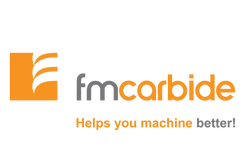Turning and Boring Applications – The Importance of Choosing the Right Insert Shape
The inserts are used for shaping a variety of metals and steel alloys. Using the right shape and quality of the insert will be necessary to achieve the desired shape for suitable turning materials. SCTools provide various shapes, sizes, and qualities for turning and boring multiple metals and alloys. Here you will learn the importance of size, shapes, and grades of insert shapes and which ones you need to accomplish your tooling needs.
Turning Insert Size
Using the right shape of an insert with turning applications is essential, and it is determined by the appropriate point angle for strength and economy. The correct size of the insert will depend upon the application requirements and the space for the cutting tool in the application. Large insert sizes require more stability with heavy machinery; the standard insert size generally increases up to 25mm. Upon completion of the project, the height of rotation can often reduce the scale of the insert.
How to Determine the Correct Insert Size
- Rule out the most significant depth of cut
- Determine the required cutting length, LE, considering the tool holder entry angle cutting depth, and machine specification.
- Make sure you know the insert’s correct slice length.
Turning Insert Shape
SCTools offers a convenient chart to help you determine the right insert shape for any project. Insert shape also dramatically affects how deep or what angle it cuts into the metal. Finding the appropriate turning insert shape will require asking yourself if your project is a rough, finished, or general turning job? Once you understand the scope of the job itself, it is time to identify the tools you need by doing quick research to ensure you are using the right tools.
Turning Insert Grades by Material
Turning is part of the machining process involving a cutting tool (bit) that moves linearly while the workpiece rotates. Finding the right turning insert depends heavily on the material being used. Determining a suitable grade for the turning material, such as hardened steel, is crucial. It calls for highly durable rigid insert grades.
Always look for grades that can withstand high temperatures and cut force so that you can find outstanding durability from turning products. Stainless steel turning often causes substantial friction and heat when turning the materials. This is why it is essential to find turning grades that can withstand heat and provide a long durable life. Highly productive turning grades can withstand the high temperatures of turning these materials without losing their edge.
Coated carbide grades are used for stainless steel, and the latest CVD and PVD coated carbide grades are the standard for all stainless steel operations. For cast iron, there are a wide array of inserts and grades, including:
- CVD and PVD coated
- Located
- CBN
- Ceramic grade
Each of these options would need to be optimized for machining cast iron.
Turning insert grades for titanium and HRSA usually consist of the following materials:
- CVD
- PVD coated carbide grades
- Ceramics
Turning insert grades for hardened steel:
- CBN
- Ceramic grades
Turning insert grades for stainless steel:
- CVD
- PVD
- Carbide grade
Turning insert grades for non-ferrous materials:
- Uncoated carbide grade
- PCD
- Aluminum
- Non-ferrous materials
Turning inserts grade for cast iron:
- CVD
- PVD-coated
- Uncoated CBN
- Ceramic grade
Turning inserts for steel:
- Optimized CVD
- PVD-coated carbide grades
- Cermets
Ensuring the Right Tools for Boring
There are numerous factors to consider when determining the needed components of boring tools, such as:
- Tool size
- Number of extensions required
- Machine spindle adapter
- Boring head
 |
If you have any questions about carbide cutting tools, end mills, drills, etc. be sure to reach out to us @ sctools.co/Home or call us at (877)737-0987. We help you machine better! |



Comments (0)